Edinburgh Fringe Festival (2017): Focusing on New Theatre – Theatre Reviews
Introduction
Edinburgh Fringe Festival is one of the largest celebration of the arts there is. There are literally thousands of different performances that happen over August including Dance, Physical Theatre, Theatre, Comedy, Poetry, Music and Cabaret amongst others. 2017 is the 70th anniversary of Edinburgh Fringe Festival and taking a special interest in the theatre showing here we were lucky enough to catch 20 shows. Just 20 of a possible approximate of 3000. Our exploration into Fringe was very much to look into the diversity of theatre and looking for good on stage performances. This is what Edinburgh Fringe has become known for and with a lot of modern theatre showing elsewhere being reruns of musical theatre and Shakespeare with a few exceptions, we were thrilled to discover new theatre.
Prospect High: Brooklyn
The first piece of theatre is about a high school that has become associated with dysfunction and violence. Teachers try to regain control as students just try to live. This was created by Daniel Robert Sullivan and was inspired by true events. Here we see how things can spiral out of control. The ensemble cast make a good effort with the material and the story draws you in. Unfortunately it looks to tackle too much at once and feels as if some issues like self-harm are thrown in just for filler. Some moments like a clock at the beginning, which is realised through physical movements – the only time they do this, lack an appropriate meaning to the rest of the piece. Whilst the casts ability to entertain and amuse people give up for some really impressive performances by some, this isn’t throughout everyone. Prospect High: Brooklyn looks to do a lot more than it can with some complex subject matter including LGBTQ rights and issues of identity. Unfortunately for all that it tries this is the first time across the festival that we come to a concept: ‘Studenty’. Here it feels like a fitting description and not in the best sense but this brings up the problem of definition. What does it mean if a Theatre show is ‘studenty’?
Prospect High: Brooklyn at EdFringe
Non-Silence
In a very personal venue we come to a very heartfelt performance by singer/piano player Emer O’Flaherty. Admittedly this exposes the weakness of our selection process. We wanted to experience everything without any preconceptions about the pieces, so were picking shows randomly based on time and availability. This, admittedly, led to our mistake in finding this musical performance. That being said Non-Silence was a chance for the singer/songwriter to make a very personal and heartfelt connection to the crowd. In a very small space she was able to build a very quick intimate connection with the crowd and gave a very emotional performance of the songs she brought to Fringe.
Cradle to Coffin
Back to theatre and actually boasting the benefits of our selection process. We had no idea what to expect and walking in to a rather framed set, it was still hard to tell. This piece boasted a spectacular use of physical movement and props; with a sparing use of dialogue that gives benefits to the rapid speed scenarios the piece gives us. We follow a man literally from his birth and growing up to his finding love and growing old and experiencing death and illness. What starts youthfully humorous ends emotionally poignant and was a very powerful piece of theatre. The use of dramatic techniques like the props of a frame to construct different scenarios was hugely successful here. The use of music lent itself to the piece, however one or two felt less appropriate and used for their popularity alone. This was a very effective use of experimental theatre. Going back to the definition of ‘Studenty’ we felt the term was less appropriate here but does reflect an artistic or experimental interest by a group. We’re coming closer to a definition of ‘Studenty’.
British Idles
Now British Idles is a new play by actor/writer Callum Forbes and looks at a group of five graduates as they deal with life as you leave university and particularly looking at the post university lifestyle. Some people end up in the same jobs they had before University and most are confused about what to do. Most are drinking and trying to distract themselves or enjoy themselves. This play is heavy on the rather vulgar humour to begin with. Characters bounce off each other in often humorous ways, relying on heavy banter between them, but this does almost feel forced to shock at times. What surprises is how quickly this draws you in to the characters before the play takes a sudden political turn. Looking at the impact of the recent votes in the UK and how this led to Theresa May essentially buying more votes. (This is a complex issue and reports on it include this article.) This leads to a very honest and powerful breakdown by one of the cast members. In its honesty it is a very powerful moment and shows an impressive performance by the actor. However, after this peak the play doesn’t quite know where to go and I find myself returning to this idea of ‘Studenty’. This can mean that a piece is perhaps wrapped in its target audience of which it is a part of, but can produce some very honest expressive works – not a bad thing in this case.
Lord Dismiss Us
Glenn Chandler, of Taggart fame, directs this play based upon the Michael Campbell novel about a homosexual love affair at school. This play already by this point had built up a reputation and we’d heard a little about it before going. Personally I find that certain topics can be the ‘go to’ for most independent theatre projects. Other than looking to reinterpreting Shakespeare or looking to insanity, there is the tales of specifically homosexual love. That being said that doesn’t mean that it can’t be done well – really well. The cast give a remarkably touching performance, especially by Eric Ashley and Joshua Oakes-Rogers, and the carefully constructed story and set lends itself to taking you on their journey. For a more traditional solid piece of theatre Lord Dismiss Us knows how to make the simple things work really well.
POV
POV is a piece of verbatim theatre, meaning that people were interviewed and their comments were performed/read out accurately to the audience. POV looks to the reactions people have to Porn and how it affects life. With some rather mild acting and some interesting moments building up the questions asked and explored in the piece. But this is their strength and downfall. They have an interesting question to ask but don’t know where to take it. It’s information that starts a discussion and is interesting but the piece trails off, rather than building to a climactic moment – question, statement or otherwise. Going back to this idea of ‘Studenty’, we can see how this idea can be represented by asking questions and exploring new ground – again far from a weakness.
A Glass of Nothing
Whereas shows like British Isles only touched upon breaking the fourth wall (a well-placed ‘thank you invisible people’ was highly comical), A Glass of Nothing revels in it. A character on stage ponders herself and is directed by a stage hand to drink from a literal glass of nothing. Each time she does she explores a desire or wish to its inevitable ends – which usually wears thin as a fantasy. This also brings in other characters from the audience. Rather poignant is the first desire that sees a performer want to be liked by its audience as a person who would like to be liked by people. This is given in a rather forceful way that humorously mocks itself but also detracts from connecting with the piece. The other desires are centered round a job and a partner. Much like POV, there is a sense that important questions are being raised for discussion but these questions go larger than the piece itself.
A Glass of Nothing at EdFringe
Grimmprov: The Improvised Fairytale
Now improvised shows are always wild cards. If it’s good one time, it doesn’t necessarily mean they’ll be good another. They tend to rely on a framework to try and get it all working and flowing a lot better. With Grimmprov they focus on three statements from the audience and work this into an improvised self-aware fairy-tale with the Grimm fairy-tales in mind as influence. One actor sets up the show and writes notes to help the actors improvising the tale. This helps the structure and to guide them when things go astray and to also remember key characters and moments. This can be contrived but is hugely helpful to the piece they put on. Improvisation puts a lot of strain on the actors and the comedy can be even harder. In keeping it self-aware they set out its just for a bit of fun and they’re just trying to have fun with you. This keeps something very casual about it and the example we saw was very funny. Moments of confusion had the ability to be knowingly confused and just playing it up for further laughs.
Schiz
Delving into the psychology of characters we have Schiz, the exploration of a mental patient with schizophrenia; he hears criticising voices as his anxieties play out and is concerned for the musical instruments he hears the stage at work as he thinks they’re alive. He is getting treatment but his condition is severe. This would be an example of a typical topic for theatre, essentially for many actors the insane explores characters with depth and lends itself for erratic and expressive behaviour. Framed in a well told story through the doctor being interviewed and her sessions with her patient. While the patient is on stage his voices are played by two other actors. The set is made up of black boxes methodically rearranged to create the different rooms and the ways in which the characters interact with it. Despite the rather typical themes that the play picks the performances show a wonderful flair for submerging themselves in the moment and produce a very effective piece.
Fourth Monkey’s Women of Greece: Pandora
Now a huge part of theatre is in the Greek classics. Sophocles, Euripides and Aeschylus, amongst others, wrote some very influential plays and the Ancient Greek style of theatre relied on some very different times and locations and therefore there is a more involved creative flair and also some traditions involved. There is a rich history to look to. The production company of Fourth Monkey look to the women of Greek mythology as inspiration for three plays and certainly with Pandora we see some of the Ancient Greek Theatre coming through. The ensemble cast also present us a chorus of actors on stage to supplement the key characters and the use of the stage with physical movements is expansive and very expressive. Telling the story of how Pandora was made and how she ended up opening the jar to release the evils on to this earth the play relies a lot on atmosphere. With an extremely powerful soundtrack to set an epic sounding and a dooming feel to the play; it almost steals the show. Performances could build close to shouting too much at times but with the agony that Pandora feels this could be appropriate. Surprisingly the character of Hope is embellished and is one of the best performances of the play. The play does change some historical accuracies and there’s a shift in focus to the victimisation of Pandora but otherwise keeps a very Greek feel.
Fourth Monkey’s Women of Greece: Persephone
Now where with Pandora, writer Ami Sayers kept things close to historical accuracy, but with Persephone the story is embellished a lot more. Telling the story of Persephone, but to retold to tell of her capture and eventual seduction by Hades but with a focus on Persephone’s school bullying and bad relationship with her mother – both elements not a part of the original tale. Whereas the Greek myth focused on Hades and Demeter, here we’re made to follow the sadness of Persephone. Some of the central cast give wonderful performances and some moments between Hades and Persephone are done exceptionally well but the school bullying feels out of place and Demeter’s bad relationship with her daughter feels odd here – again, not a part of the original tale. We still see the amazing atmosphere that we also saw in Pandora but ultimately they’re taking Persephone into different directions.
Fourth Monkey’s Women of Greece: Medusa
Medusa tells the tale of four nymphs (not three Gorgons) and how Medusa angered Athene in her temple by a shepherd (not Poseidon). The historical inaccuracies are dragged further out and instead seem to favour a feminist reading of Medusa as a symbol of rage. This goes as far as to make a mockery of Athene as the two women clash towards the end of the play. We see the same strengths in performance, chorus, atmosphere, soundtrack and expressiveness as before; but we see more of the reliance on shouting and also see some rather crude use of the space to make snakes following Athene, which also seems misplaced. It is by this point that we see that Fourth Monkey is a large company and is perhaps forcing more characters into stories to give more actors roles to perform. They have put on some very powerful performances but their themes are often undermined by their writing. Certainly unique plays at Edinburgh Fringe but falls short of their aims.
Penthouse
A straight story of a millionaire trying to hide in a hotel with an escort as his colleague and dealer finds him and eventually brings out why he’s hiding. Here is a less experimental play that shows a straightforward story acted really well. The compelling story keeps you to the point of not wanting it to stop. The escort is played with a strength and a sort of class that you wouldn’t expect, which makes her character very endearing. The main character feels careless and blunt but troubled and you follow his emotional journey throughout. His dealer has a certain idiocy that plays himself as the fool; he gets quite a few laughs this way. Playing a likeable fool is hard and calling him that almost reduces the character too much. His colleague is very nasty and this produces a lot of the conflict. His nastiness is part of a blunt ‘no bullshit’ attitude and is used to get the truth out from other characters. With each part played well it quickly became an unexpected highpoint of the festival.
Whodidit?
A return to comedy with a self-aware production about a detective looking for an escaped murderer in Whodidit. Characters are funny archetypes, as they go from character to character asking questions. All the while the audience are very much left aware of who the likely villain is. Some jokes go as far as breaking character: “Really you brought me on stage just for that? You’re always trying to upstage me” – in reference to an actor being brought on stage to call for the other character they play. All the way through you are very much aware that it is a play for laughs and silliness. In this way the play is very funny, but are very much actors having fun and not characters themselves. Again this does remind me of the term ‘Studenty’; having fun with the material.
The Rape of Artemisia Gentileschi
One of the straight stories, without much experimentation, but instead just a solid piece of acting and character study: The Rape of Artemisia Gentileschi is routed in history. Telling the dialogue that Artemisia Gentileschi has with Tuzia – her former friend. Their discussions reveal the aspects of her rape trial and how Tuzia was involved and bringing into question exactly what happened. Finely performed by a strong cast, this play is very dialogue and exposition heavy. It manages to keep a style that feels appropriate to the time however. Albeit, the dialogue gets a bit tiresome as it becomes repetitive by the end.
Rape of Artemisia Gentileschi at EdFringe
Evocation
One of the most experimental pieces of Theatre, Evocation brings a mix media approach to something that is heavily routed in the poetry of Albert Giraud – specifically Pierrot Lunaire: Rondels Bergamesque. With a strong basis for emotional intensity and combing vocal projection with a complex set design and the use of puppetry to externalise the many victimisations of a central character, who dances and recounts the poems in distorted but emotive tones. This feels like a heavily routed piece of experimental art theatre. Where the idea of experimental has been attached to this concept of ‘Studenty’, Evocation proves that being experimental doesn’t necessitate this idea of being ‘Studenty’. A piece of well-constructed art with some highly emotive pieces and highly symbolic moments can escape this. Evocation is a powerful non-narrative piece of art Theatre.
Lipstick and Scones
Returning to narrative form with a comedy that explores what goes on under the surface of a bourgeois family. The drama is particularly routed in the three sisters who take to very different coping methods for their issues with each other and in life. It is in the three sisters that the play is most interested and they have some very honest and poignant moments on stage. The supporting characters, their partners, feel one dimensional at times despite the best efforts of their cast. In its most daring times there are moments that feel almost out of a Luis Buñuel film. However, what is started is finished simply, perhaps they needed more time to devote to character development, perhaps the play didn’t know how to end it. The play has some strong ambitions and special devotion to its characters that just aren’t quite completely realised.
Lipstick and Scones at EdFringe
Venture Wolf – Lipstick and Scones
Craig: Deception
Okay, now I know I said that this was going to focus on Theatre and it does but after 16 pieces of theatre we decided that a moment for something different was in order. Craig: Deception is a magic performance. Boasting a charming connection to the audience as he asks the audience to interact with him. These moments on stage are something similar to telepathic but is described as ‘Telerabbitry’ – ie reading the mind of a soft toy rabbit. The moments play out well and it would be difficult to discover any further reason for what he achieves. The performance ends with a daring grab at a card in a trap, something that looked like it would hurt. It all goes smoothly and with odd care to explain the way that most magicians work as a means to further demonstrate the complexity of what he’s doing on stage. Most tricks are card or mindreading based and caters well to that crowd.
#instalove
So in our random selection process we can also have some surprising outcomes. We won’t always know the kind of things they are just by name and won’t know exactly what we’re in store for. I found #instalove to be very challenging and I couldn’t quite figure out why. What we see is four characters as if on a speed dating or online dating site and she interacts with us, the audience, to see who we’d select. What follows is some personal expressions teamed with personal questions both about love and relationships, and directed directly at the audience. What should be understood is that the piece is looking to ask these crucial questions. What is love? Who do we put across? Is love the fantasy or is it the reality we hope for? These are just a few of the questions raised by the piece. The writer performer, Catherine Duquette, gives a solid performance and a mastered command of both stage and audience. Audience as performer and participant challenges the boundaries and, perhaps, in being so personal and on the spot it is what challenges the audience the most. Who are you? Who do you want us to see? Do you try to please or are you more honest or blunt? But most importantly, what is love? This is an important play asking some fundamental questions and I hope that the writer/performer finds answers. They’re certainly what audiences will find themselves asking every once in a while.
Droll
Drolls were short performances that came after Theatre was made illegal in England. Performances didn’t stop, Theatre just changed. Drolls were silly and uphazardly just for fun. The historical basis for this play grounds what would otherwise feel a perhaps self-indulgent piece of ‘Studenty’ theatre. It is well researched; it is a complex performance. Thinly veiled as an obvious piece of acting. The humour can be blunt, gross or forced but the quick comradery that the group build with their audience are testament to a piece of solid acting. We will likely see more Drolls as time slowly reveals them.
Conclusion
I kept returning to this idea of ‘Studenty’ and now, with my experience of Edinburgh Fringe Festival, I hope to have a definition – of sorts. ‘Studenty’ isn’t necessarily a bad thing – but it can be. It shows a desire to experiment and ask questions with theatre in a way that is fresh but can often fall to the pitfalls of keeping oneself or ones’ friends as their target audience, or even just relying on repetitive techniques to be more powerful than they can be. A student is still experimenting and developing and this can be the most honest and powerful thing, but it also shows the difficulties of finding oneself. Perhaps this is the best description of something being ‘Studenty’. It is never to discourage but to nourish a form of honesty that looks to achieve more than the standard. Perhaps there should be more of these moments as they will be the next innovation in Theatre.
All Images are to their respective plays and explicit thanks to all performers and crew who made these plays and indeed Edinburgh Fringe possible.


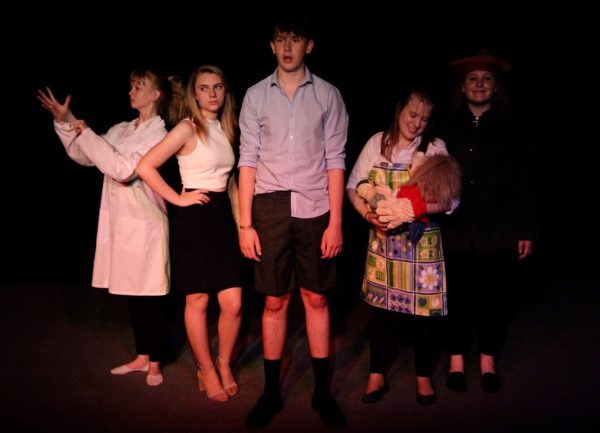
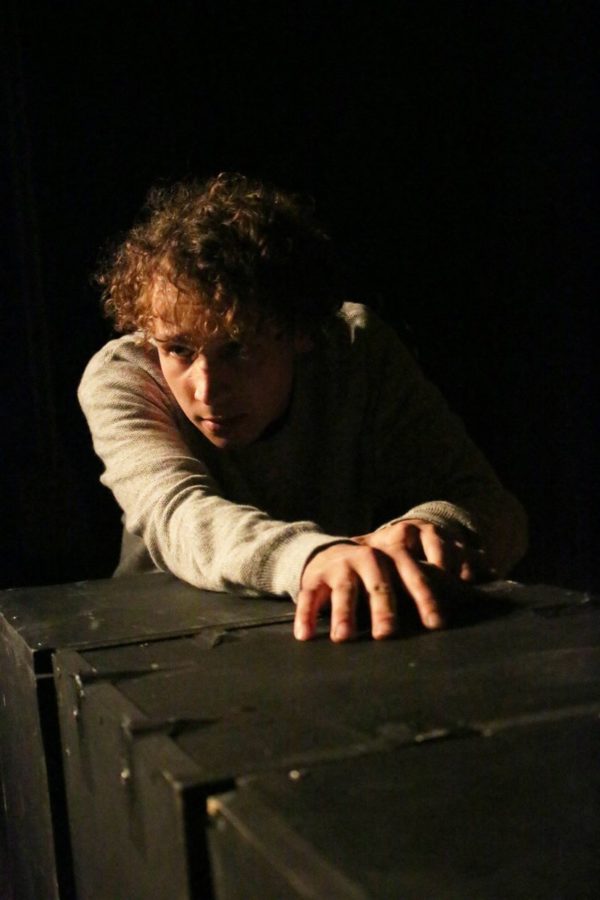
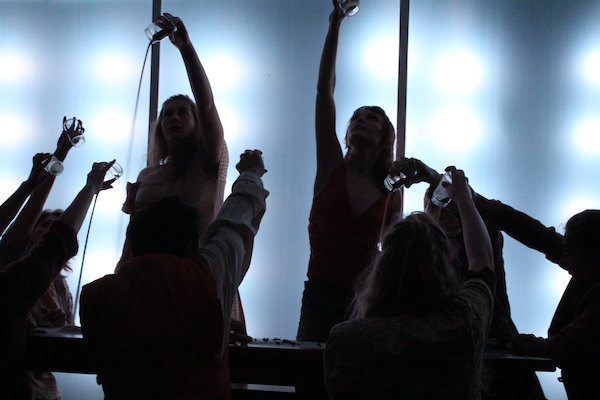

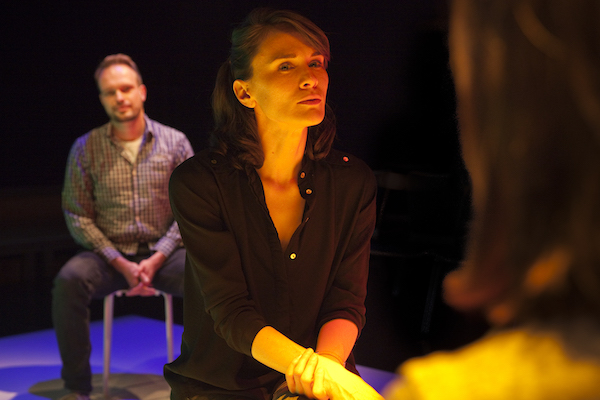


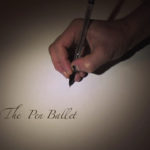
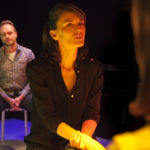
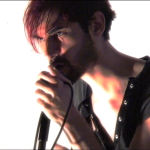

Leave a Reply